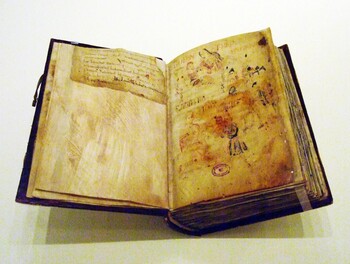Lombard Law-Books and Book Culture, ca 850-1025

Lombard law-books were produced and used from the mid-ninth to early-eleventh centuries, demonstrating their continuing historical and legal significance well beyond the end of the period of Lombard rule (568-774 CE). The Lombard laws, comprise the earliest written Lombard law-code, the Edictus Rothari (643 CE), and additional laws issued by Lombard kings until the mid-eighth century. The project focuses primarily on nine extant law-books produced between ca. 830 and 1025 CE, their current repositories, shelf-marks and other pertinent and details are given in the map below. Each of these law-books contains a copy of the Lombard laws alongside a range of associated items including: Carolingian and Ottoniancapitularies, law-codes of other early medieval peoples - such as the Ripuarian and Salic Franks, Alemans and Bavarians - as well as various formularies, historiographic texts and other such items. However, the production and use of the early medieval Lombard law-books in the ‘long’ tenth century has received relatively little attention from scholars of book history, the history of law and intellectual history.
This interdisciplinary research project aims to undertake a manuscript-led study on the Lombard law-books produced and used in the mid-ninth to early-eleventh centuries. I shall investigate the ways in which their scribes and readers adapted the laws in the developing legal contexts of the ‘long’ tenth century. I shall explore how scribes presented the laws on the manuscript page so as to direct and facilitate the interaction of their readers with the legal content. I shall also investigate how Lombard laws and Carolingian and OttonianCapitularies were appropriated and transformed in tenth-century book culture, and in turn laid the foundations for the development of Lombardist legal studies in the eleventh and twelfth centuries. Through this study I shall contextualise the Lombard law-books on both the micro level of scribes, readership and local communities, and the macro level of the legal and literate cultures of Italy and Western Europe. This fundamental research will lead to an updated and nuanced perspective on the role of the Lombard laws in the tenth-century and across the early and high medieval periods.
Project leader:
Thomas Gobbitt
Funding:
FWF Standalone project,
SeniorPostdoc
Project-Number: P 29968
Duration: 01.05.2017 - 30.04.2020

